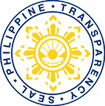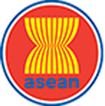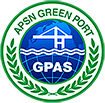
The Port of Cagayan de Oro was recognized as one of the APSN Green Port Award System (GPAS) winners for 2018 among the candidate ports from the 18 member economies of the Asia-Pacific Economic Cooperation (APEC).
The GPAS, launched in 2016, is an evaluation system for APEC ports that are implementing programs for environmental sustainability in their port operations for at least two (2) years. It serves as a platform for best practices sharing among APEC ports, enhance environmental awareness in the Asia-Pacific region, and promote innovations for green growth.
With the incessant support and encouragement of the PPA Management who had also endorsed the Port of Cagayan de Oro to be the official candidate of the Philippines for GPAS along with the Port of Batangas who has also been a GPAS winner last year, PMO MOC’s aspiration for the Port to be a candidate for GPAS award (let alone winning) to share its initiatives and practices for environmental conservation/protection to the Asia-Pacific region was materialized.
During the annual awarding ceremony held in Singapore on 15 November 2018, the Port represented by Port Manager Isidro V. Butaslac, Jr., received the Certificate of Recognition, ASPN Green Port badge, and flag banners from the APEC Port Services Network (APSN).
Green Initiatives and Practices
The Port’s operations and practices, though aim for sophistication and modernization, are anchored towards conservation of energy, noise reduction, protection and preservation of the water, land, and air, and promotion of environmental awareness among the stewards of nature—the people.
To conserve energy, the Port has 80 units of solar panel lights and replaced High-Powered Sodium (HPS) Lamps for streetlights and Mast Towers with LED bulbs which translates to 46% and 40% energy savings respectively; upgraded cargo handling equipment from old forklifts and stackers to rubber tired gantry (RTG) cranes and rail mounted gantry (RMG) cranes to improve productivity and efficiency, thus minimizing energy and carbon emissions, and reliance to fossil fuel; and adopted smart lighting system in the buildings which automatically provide lighting only when needed.
For protection and preservation of the water ecosystem, the PMO’s Scuba Diving Team duly certified by the Professional Association of Diving Instructors (PADI) regularly conducts underwater garbage collection/cleanup activities ( coined as SCUBASURERO- “scuba” + “basurero” a person who collects garbage), underwater/underdeck surveying activities, flora and fauna inventory, including restoration activities i.e. detached lighted floating navigational buoys at ports. Personnel also actively participate in coastal clean-ups. Furthermore, to add breeding grounds for fish, more than 5,000 mangrove propagules were planted within the total combined area of 30 hectares located at Bonbon, Cagayan de Oro; Pangayawan, Gitagum; and in the PMO adopted area of Taytay in El Salvador, Misamis Oriental.
As to air quality, the Port has passed the Department of Environment and Natural Resources National Ambient Air Quality Standards for its efforts such as, but not limited to, 50% CO2 emission reduction and air pollutants through the replacement of cargohandling units, use of Shore-Based Power Supply (cold-ironing), and the establishment of three (3) Carbon Sink Areas/ Greenbelt areas which grew 255 trees of various species now aged 40 years and below.
PMO also maintains an organic vegetable and flower garden where various vegetables and legumes were cultivated on used car tires and are harvested for feeding programs. To prevent land pollution from large amount of wastes, Solid Waste Management (SWM) was implemented which adopted 4Rs(Resource Recovery, Reuse, Recycle) that has seen to help reduce residual waste by 2%, increase of collection of recycled paper by 12%, plastic containers by 85%, food waste by 100%.
To promote environmental awareness, PMO employees, port stakeholders and residents of the barangays where the Port is located participate in various fora on Climate Change, Solid Waste Management, Clean Air Act of the Philippines, Clean Water Act of the Philippines, among others. They are also actively engaged in tree planting/growing activities coastal clean-up, mangrove planting and gardening.
Compliant with environmental laws, PMO MOC submits regularly to DENR self-Monitoring Reports under the Republic Act No. 9275, Philippine Clean Water Act; Republic Act No. 8749, Philippine Clean Air Act; Republic Act 6969, Hazardous Waste Act. It annually conducts Ambient Air Quality Monitoring, Stationary Source Air Emission Sampling, Emission Testing for PPA and Oroport Cargo Handling Equipment, Water Effluent Quality Monitoring of the port’s oil and water separator facilities, and Ambient Water Monitoring.
Through these hard works, the PMO MOC has been recognized by Partnerships in Environmental Management for the Seas of East Asia (PEMSEA) for the Port of Cagayan de Oro’s Port Safety, Health and Environmental Management System (PSHEMS) which covers three standards including ISO 14001:2004 (Environmental Management).

Opportunities and Challenges
Profiles of the winning ports are deemed to rise to promote overall competitiveness and induce huge impacts on the society. For the Port of Cagayan de Oro, this recognition gives the Port a seal of reliability and integrity which is deemed likely to help improve the port’s image locally, nationally, and internally, and open new potential commercial opportunities for the port, PPA, and the port operators in the form of higher number of ship calls and cargo volumes that translate into revenues. Moreover, the Port has contributed, in its own way, to the efforts to attain the Sustainable Development Goals #6, 7, 13, 14 and 15, and adherence to the E.O 774, Reorganizing the Presidential Task Force on Climate Change.
Apart from the opportunities this award may entail, this achievement is but a challenge for the Port and the PMO MOC in several aspects:
- By taking responsibility for clean air, land and water, port stakeholders work together to meet more stringent environmental standards and deliver excellent business results;
- Doubling the efforts to encourage ocean-going vessels/ships to reduce emission of pollutants by using clean fuel and use shore-based power supply;
- Level-up performance to sustain a green and eco-friendly port;
- Continue professionalized operations;
- Push for the wide use of bio-based renewable energy such as LNG and bio-fuels and circular economy and transition energy;
- Initiate more environmental-friendly programs/projects to reduce carbon footprint and mitigate the effects of climate change particularly on the engineering, e.g. more solar panels, improved water treatment facilities, etc.
Through GPAS and APSN’s initiatives, ports are encouraged to continue to contribute to green port development which the Port of Cagayan de Oro will continue to take part in.
More than ever, the Port of Cagayan de Oro is unyielding in its pursuit for better, greener and sustainable port and reckons that advancement is a by-product of synergy of the nature’s gifts, eco-friendly port operations, and people’s participation. —by IMR Lam


















